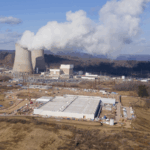Tech giants like Google and Amazon are hitting refresh on their Latin America data center plans as severe droughts force a reckoning over water use. 💻🌡️ With cooling systems guzzling billions of liters annually, activists and climate realities are rewriting the playbook for big tech’s infrastructure.
Chile & Uruguay: Thirsty Tech vs. Climate Pressure
Google’s proposed $200M Santiago data center initially planned to drink 7 billion liters of water yearly—equal to the needs of 80,000 residents. But after a decade-long drought and court battles, the company switched to air-cooling tech. Activist Tania Rodriguez called it a “precedent” for accountability. ✅
In Uruguay, Google’s 2019 plan for a Montevideo-area center faced backlash when a 2023 drought nearly emptied water reservoirs. The redesign slashed usage through costlier air-cooling systems. 🌀 Amazon Web Services also pledged to make its Santiago centers “water-positive” by 2030.
Heat vs. Innovation: The Data Boom’s Hidden Cost
Data centers—critical for your Netflix binges and TikTok scrolls—generate massive heat. “High-frequency processors are like mini furnaces,” explained Chile’s Eduardo Vera. Cooling eats 40% of a center’s structure, often via water-hungry methods. 💦
Chile’s government still aims to double its data centers to 50, claiming new projects will use “practically zero” water. But activists warn retrofitting existing sites is tough. As Rodrigo Vallejos put it: “Once built, the water keeps flowing one way.” 🚱
From court orders to climate pledges, tech’s Latin American blueprint is evolving. Will innovation outpace the drought? 🌱🔌
Reference(s):
Tech giants rethink data centers in drought-stricken Latin America
cgtn.com






